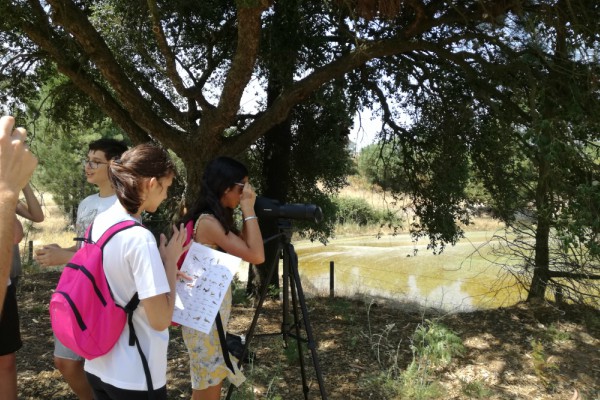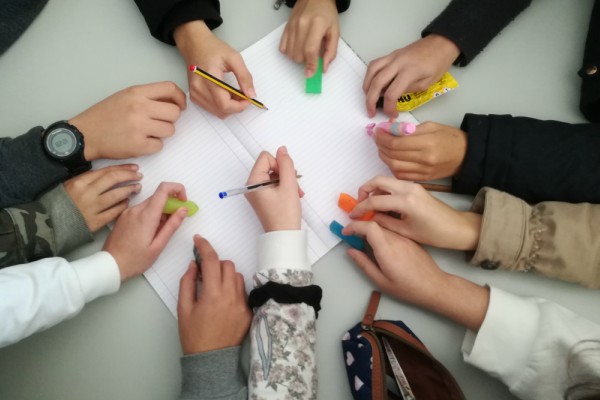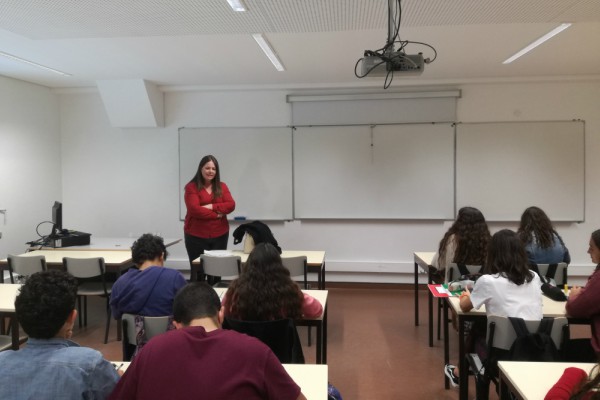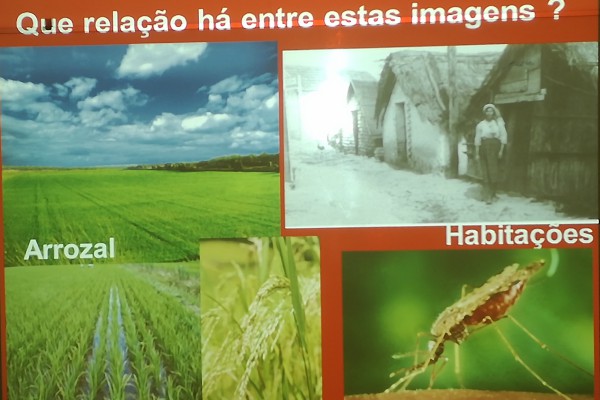Hosted by OSOS , contributed by Pedro Oliveira on 8 April 2019
The region of Marateca-Poceirão belongs to the Municipality of Palmela contacting, in its westernmost part with the Sado estuary. The majority of the population of the Municipality considers that in Marateca only wine is produced and the apple is harvested, not knowing that there is also a series of activities related to the estuary, such as salt production, oyster culture and rice. In the contact zone between the Ribeira da Marateca and the Sado Estuary, we can observe many birds, in particular the waders, this area being an excellent hotspot for their observation. In the zone there is no information on the existence of this hotspot nor any guide for the observation of birds that can be seen here. There is also no disclosure about economic activities linked to the estuary. With the purpose of making known the region and its tourist and even economic potential, the students have been contacting several entities with the objective of putting up an information panel about the birds that can be observed in the region and collecting information for the dissemination of the economic activities linked to the estuary and sensitizing the population to this reality.
Feel
Palmela is a municipality located in the metropolitan area of Lisbon. It is part of the Arrábida Natural Park and borders the Sado Estuary in the Marateca region.
Palmela is known for its vineyards and orchards but very little is known about its connection to the Sado estuary and the economic activities associated with this piece of paradise. The region of Ribate da Marateca that contacts the Sado estuary is an excellent area for birdwatching, in particular for shorebirds.
The students of the Secondary School of Pinhal Novo decided to divulge and publicize the richness of this region and to promote its potential tourism and even economic.
The creation of a bird observation point has already been identified and will be signaled and disseminated, but the definition of a pedestrian route is still being considered, together with the municipality, as it depends on the permission of the owners of the existing lands in this region.
Project stages:
1. Recognition of the region where birds can be observed.
2. Collection of images about the birds that can be seen in the Ribeira da Marateca.
3. Placement of bird identification panels that can be observed with the description of the same.
4. Promotion and dissemination of economic activities in the region that are directly associated with the estuary (rice production, oysters and salt).
5. Production of informative leaflets on the region's wealth and its tourism potential.
6. Definition of a course for bird watching (dependent on the involvement of landowners by the river).
7. At a later stage students will be involved in the promotion of field trips for bird watching and cleaning and maintenance campaigns for this hotspot.
8. Raising the awareness of the local population to the tourist potential of the region.
12. Dissemination to the community of the activities carried out.
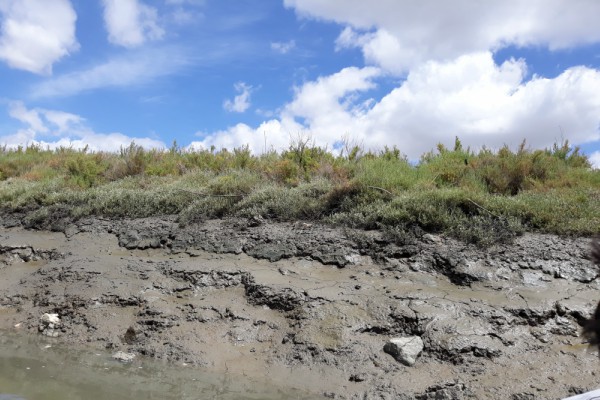
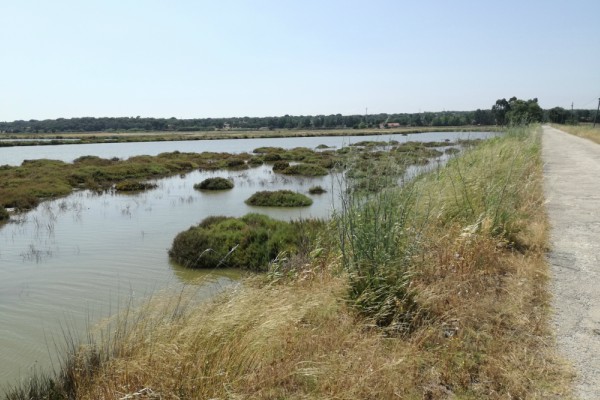
Imagine
The students, after learning about this hotspot, decided to mark the place with an informative placard about the birds that can be observed in the region. From this first idea, they contacted the autarchy to request support and the institute of nature conservation. Another step was to gather information on the economic activities in the region that were directly related to the Sado estuary.
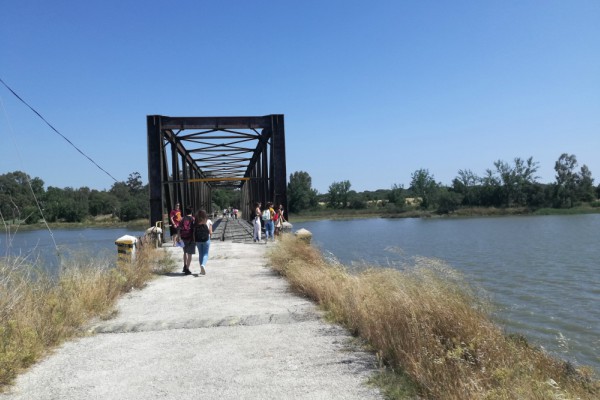
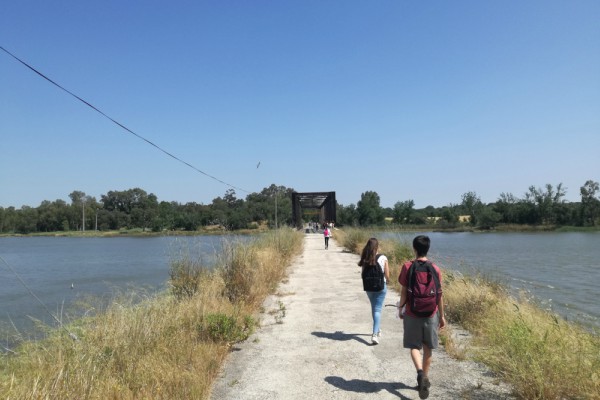
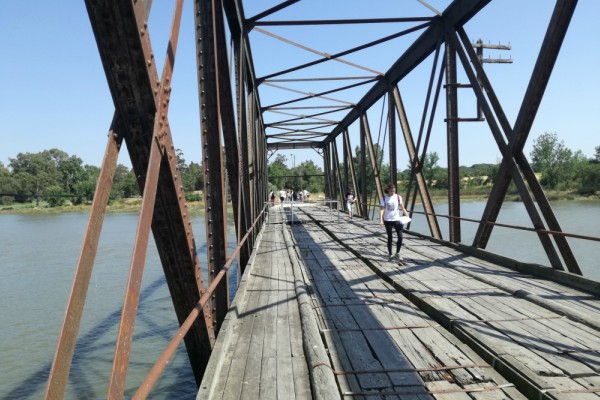
Create
Mark the place with an informative placard about the birds that can be observed in the region.
Based on the information gathered, the students will be elaborate leaflets about these activities and a whole set of traditions associated with them.
